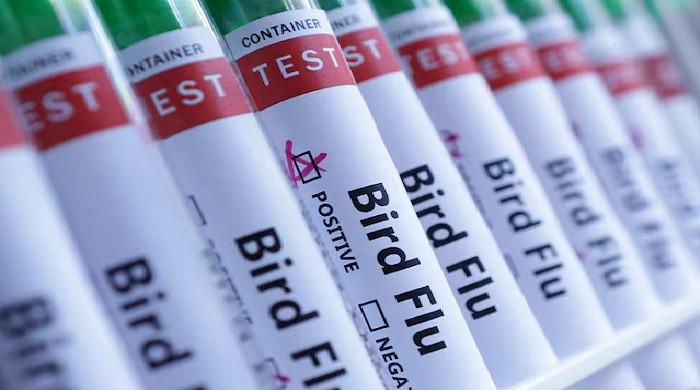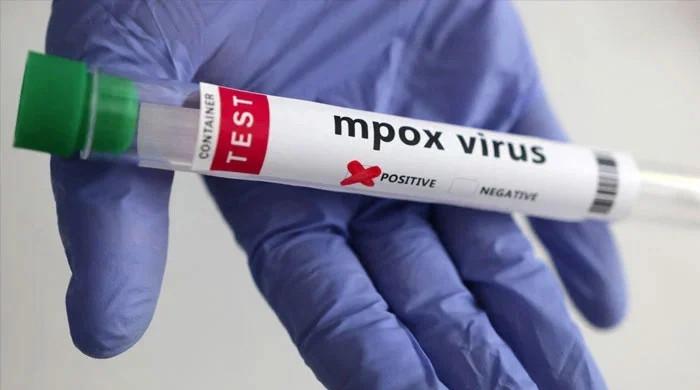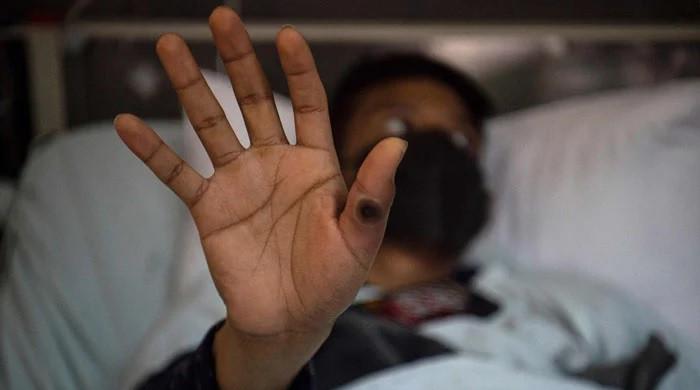WHO official lauds Pakistan's efforts in tackling coronavirus pandemic
'Authorities are doing their job and now it is the people's responsibility to follow instructions and take preventive and measures'
March 13, 2020

KARACHI: World Health Organisation's (WHO) Country Representative in Pakistan, Dr Palitha Gunarathna Mahipala has said the country has come up with one of the world’s best National Response Programme against the COVID-19 pandemic, reported The News on Friday.
The WHO official urged people to follow the precautionary and preventive measures to avoid contracting the lethal virus, which was extremely contagious but not as lethal as some other members of the coronavirus family.
“Pakistan has timely come up with one of the world’s best National Response Program against COVID-19 and it is being implemented very effectively. Authorities are doing their job and now it is the responsibility of the people to follow the instructions and take preventive and precautionary measures to avoid contracting the viral disease”, Mahipala said while speaking exclusively to The News during his visit to Karachi.
During his visit to the metropolis, the WHO representative inspected the isolation ward of the Jinnah Postgraduate Medical Centre (JPMC) in Karachi and during his meeting with the Executive Director JPMC Dr Seemin Jamali, expressed satisfaction over steps taken by the health institute for dealing with the suspected patients. He called for more testing facilities in the public sector in case the number of patients increases.
He also visited the Dow University of Health Sciences (DUHS) Ojha Campus and inspected their diagnostic lab as well as their isolation facility, terming the health institute a "world-class diagnostic and treatment facility".
As part of his engagements in the city, Dr Mahipala also met the provincial health minister Dr Azra Pechuho and inquired about the status of diagnostic kits and Personal Protective Equipment (PPE) and offered WHO’s support in the provision of kits for the testing of suspected COVID-19 patients in Sindh.
Talking to The News at the WHO sub-office in Karachi, Dr Mahipala noted that the federal and provincial governments had arranged around 2,000 isolation beds in the country to house suspected patients while extraordinary screening arrangements had been made at the points of entry by the authorities, which were helpful measures to keep the virus away from the country.
“At the moment Pakistan has seven diagnostic labs which are capable of conducting 15,000 tests but there is a need for more diagnostic facilities in case the number of suspected patients go up,” he said.
"Authorities have even established a mobile diagnostic facility that had been dispatched to the Taftan border for testing and diagnosing suspected people coming from Iran," acknowleged the WHO official.
Highlighting the severity of the COVID-19 pandemic, he said even countries with well-advanced health systems like South Korea and Italy failed to contain COVID-19 but added that Pakistani authorities timely responded to the threat and took measures which resulted in keeping the virus at bay for a longer time at a time when other counties were already battling a rising number of cases.
“Maintaining hand hygiene is the key to prevent oneself from contracting not only COVID-19 but also many other transmissible diseases. People should regularly wash their hands with soap and water at least for 20 seconds and use sanitisers when they can’t wash their hands”, he said adding that adopting coughing etiquettes was also very import as it would prevent spreading the virus to the others.
“And it is very important that people remain indoors for some days if they have flu-like symptoms. It would prevent other people from contracting the disease even if it is not COVID-19”, Dr Mahipala said.
To a query, he said that according to a study, 67% of the patients who were tested positive with COVID-19 had cough with temperature and difficulty in breathing.
He advised people to consult a doctor or visit the hospital if they have these symptoms and have come into contact with any person who had been tested positive for COVID-19 or had come from abroad.











